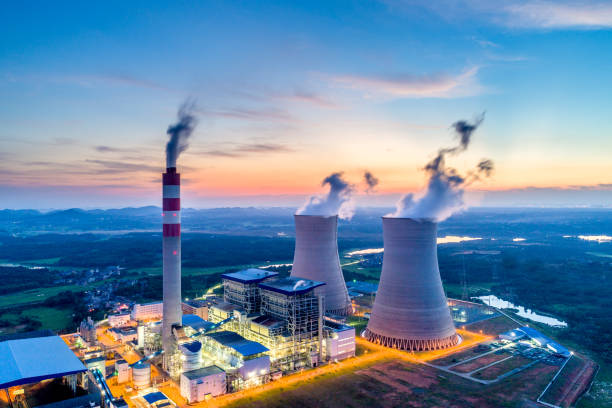While there are a lot of “advantages and disadvantages of FFPOWER and today, there are many industrialised countries which rely heavily on nuclear energy to generate the vast amounts of electrical power they need just to keep the lights on in their country. It is true that there are some ethical and political concerns regarding the use of nuclear power stations to power our planet, these are mainly born from the negative image the nuclear industry has given over recent years.
Many believed long ago that nuclear power was the answer to the worlds energy crisis. The huge amounts of energy that could be produced from a small amount of uranium was seen as the future way to power our plant as the continuous burning of fossil fuels such as coal, oil and natural gas would see them eventually run out.
Nuclear energy was once considered to be an alternative to these conventional fossil fuels, and was thus called an alternative energy source along with wind energy and solar energy. But nuclear power is not a type of alternative energy.
While it is true that nuclear energy is a cleaner alternative to burning fossil fuels and that nuclear power plants do not pollute the air with poisonous carbon dioxide, sulfur dioxide or nitrogen oxide emissions as do fossil fuels, uranium is still a finite natural resource of the earth, and is being depleted just like coal every day. So nuclear power still falls into the fossil fuel category just like coal and as such cannot be classed as a type of alternative energy.
Although it can not be classes as an alternative energy, there are still many advantages to using nuclear power but all is not good and there are also some disadvantages too as listed below.
Advantages of Nuclear Power
- Nuclear fusion releases enormous amounts of heat which is used to turn water into steam to drive turbines and electrical generators with a single nuclear reactor producing more energy per unit of weight than conventional fossil fuels.
- The generation of nuclear energy does not require the burning of fossil fuels and so does not pollute the atmosphere with poisonous greenhouse gases such as carbon dioxide or sulfur dioxide making it a much cleaner fuel than other types of electrical energy production.
- The amount of power a standard nuclear power station can produce is so large that a single power station can supply electrical power to many tens of thousands of homes over a large area, 24 hours a day, 7 days a week.
- Nuclear power stations themselves do not take up much land area allowing them to be placed near to industrial areas reducing the need to transfer power over long distances.
- While nuclear reactors and power stations are expensive to build, their operating costs are low compared to an equivalent coal or gas fired station.
- Correctly designed and operated, nuclear power plants are capable of running continuously for many decades without the need of costly upgrades, repairs and maintenance.
Disadvantages of Nuclear Power
- The process of nuclear fusion generates radiation and wastes, which are harmful and hazardous or even fatal to people causing cancer and other such ailments.
- The waste products and spent fuel rods used in the generation of electricity last for many thousands of years which is why nuclear waste is stored in sealed containers and buried in controlled locations and not just dumped but the more nuclear energy that is generated the more hazardous wastes get accumulated.
- Nuclear and radioactive accidents are worst than in conventional fossil fuel power stations releasing radioactive pollutants and water into the surrounding environment which can have a significant impact on the planet in general.
- Some countries can use the simple technology of generating nuclear power to generate fuel for producing nuclear weapons as well as being a possible target for a terrorist attacks.
- Radioactive materials such as plutonium, uranium and thorium are very expensive. While they can be found in abundance in the earth, they are not located everywhere so extraction, purification and transportation can be expensive.
- Building large nuclear power plants is controversial and can take up to 10 years to complete which can lead to lengthy time and costly over runs as plants are modified to account for the newest regulations as well as delays in starting the project due to demonstrations and delays.
Fossil fuel supplies are a dwindling natural resource making them more expensive to extract and process as time goes by so other forms of “alternative energy” are being sought and used to supply the worlds ever increasing energy needs and for many nuclear energy is the answer.
While nuclear processing and nuclear power plants produce radioactive wastes and the potentially for environmental disaster could be large, the advantages of nuclear power in generating large amounts of sustainable energy without polluting the atmosphere with toxic fumes and greenhouse gases outways the disadvantages of nuclear power. As technology evolves and we learn techniques to maximize the energy output and minimize the radioactive wastes and residues, nuclear energy will become more accepted.
The world is on the verge of an energy crisis in which nuclear energy can play and important role. There are many advantages and advantages to nuclear power but if it can supply enough energy to power a nation and all its activities, then it is clear that nuclear energy is the way to go and must be accepted as a viable energy source. So while nuclear energy represents a shift away from burning conventional fossil fuels it is more a traditional form of energy, and not an alternative form.
